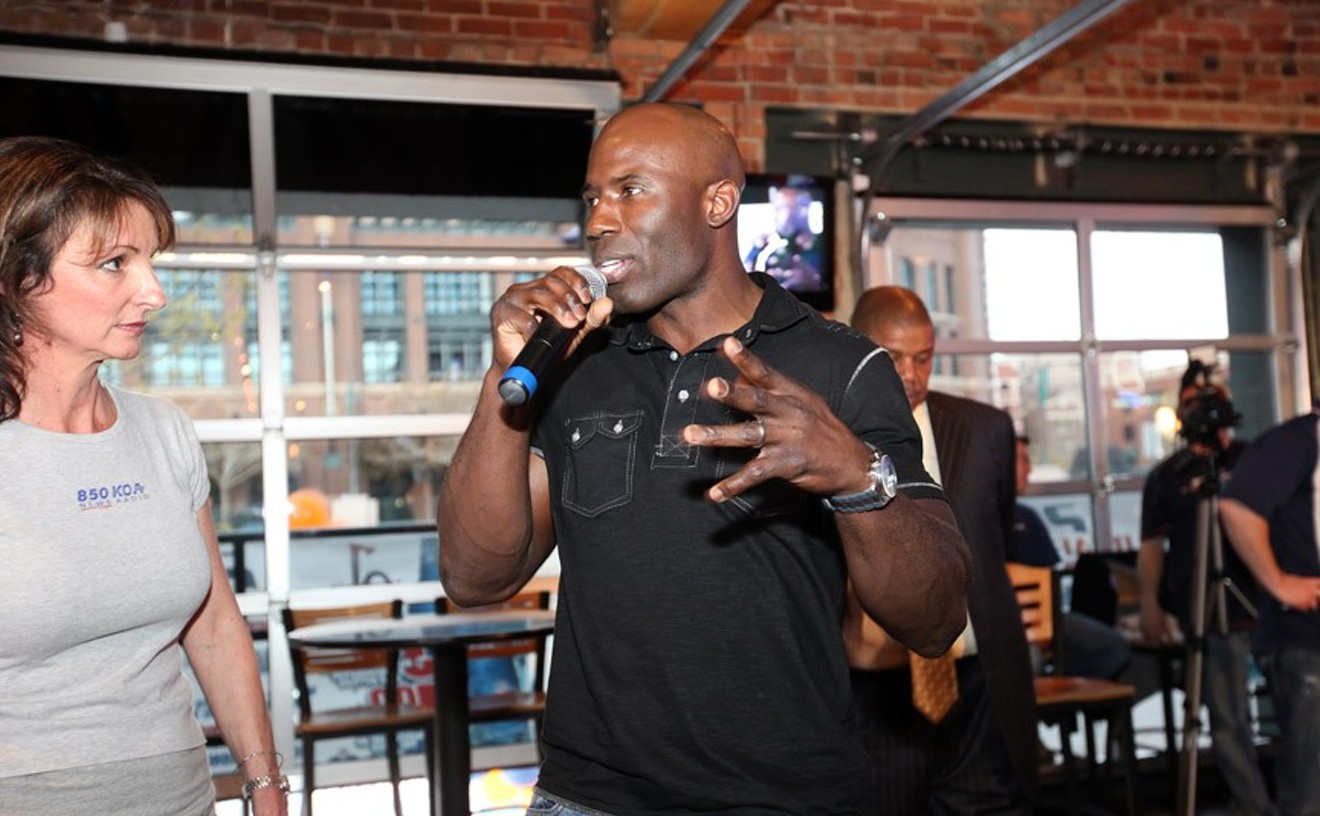Several people close to the situation say the state's sudden move against High Plains--after nearly ten troubled years of keeping juveniles at the facility--was motivated by concerns about a pending report on Dateline NBC. That prime-time news show was preparing a report on the company that runs High Plains, Rebound Programs LLC, when state officials pulled forty Colorado boys out of the problem-plagued lockup on April 1, more than five weeks after Maloney's suicide.
The state has since vowed to keep Colorado prisoners out of the facility for at least a year. And Rebound has responded by playing hardball: Lobbyists hired by the company--including a former legislator who was instrumental in passing the law that allowed High Plains to open in the first place--are now fighting funding for a long-awaited state juvenile jail.
Rebound has much to gain from its lobbying effort. If the state goes through with plans to build a 500-bed campus at the former Lowry Bombing Range, the Division of Youth Corrections (DYC) presumably would no longer need the 180-bed High Plains facility, which houses inmates from Colorado and several other states. Colorado also wouldn't be as dependent on three other Rebound-run facilities that are now full of Colorado youths. Rebound runs a holding facility near Colorado Springs for forty juveniles, a boot camp near Pueblo for eighty, and a treatment home in Sheridan that can hold up to forty.
The official line from the state is that an audit done in the wake of Maloney's suicide was all that was needed to warrant pulling Colorado prisoners from High Plains. Maloney, a Utah resident and one of roughly 100 out-of-state prisoners being held at facility, hung himself after midnight February 22 in a corner of his room not visible from the hallway window. He had been dead at least four hours before being discovered by Rebound staff. (Rebound officials refused to comment for this story.)
"They violated their own policies," Dwight Eisnach, a spokesman for the Department of Human Services, says of Rebound. He says High Plains didn't have enough staff on duty the night Maloney killed himself. The facility also had admitted Maloney in violation of its policy against taking juvenile offenders with significant mental problems. Records show the facility had at least 22 inmates, including Maloney, with prescriptions for psychotropic medications.
"They had no ability to deal with that boy, or any boys with psychological problems," says John Dicke, a Denver psychologist who has treated former Rebound clients for years and claims that most of them received no real psychological treatment while incarcerated. He points out that the state's latest audit showed that a consulting psychologist spent only a few hours at the center each month.
"They knew, or they should have known, that they couldn't handle that boy, but for them that $190 a day was more important," Dicke says. (Rebound bills other states $190 per day to hold boys. Taxpayers pay $142 per day for each Colorado juvenile, the maximum allowed under state law.)
While the violations uncovered by the latest audit are serious, they seem almost trivial when compared with the problems reported in a string of earlier audits ("Bad Boys," July 31, 1997). For instance, in the new report, auditors describe having found a gang of long-term residents whose activities aren't sufficiently monitored. But their most compelling evidence of wrongdoing was that the gang was allowed to watch TV in a room with no adult supervision. "The floor had popcorn and other food particles from the previous evening," according to the audit report. "The impression given was that these youth are held apart from other youth in the facility and do not have to follow the same rules, such as cleaning up after themselves."
But if state officials wanted horror stories about High Plains, all they had to do was read audit reports submitted between 1994 and 1997 by inspectors from Colorado, Illinois and other states. Those surveys found evidence of serial rape of inmates by other inmates, sexual assaults on inmates by staff members, and staff members providing drugs to inmates. So many staff members were being injured by inmates that the federal Occupational Safety and Health Administration threatened to shut High Plains down in 1995.
Yet the state didn't bother to pull High Plains's license after those earlier reports. In fact, the DYC continued to house between forty and ninety Colorado boys there. That is, until Dateline NBC let state officials know it would be airing a show about Rebound highlighting Maloney's death and other problems.
Eisnach says he knew Dateline was working on a story and admits that public image does play a roll in policy decisions. "This is a hard public-relations problem," he says. He notes that the state must also consider the potential for an economic hit on the town of Brush. In addition, he says, Colorado doesn't want to put a pinch on other states that rely on High Plains to hold their most violent juvenile offenders. Indeed, state officials say the only reason High Plains hasn't lost its license is that other states have told Colorado that they have nowhere else to put the inmates detained there.
And now that network crews have pulled out of town, High Plains may ride high again. The Department of Human Services believes it has the statutory power to yank the facility's license immediately, says Eisnach. Instead, authorities have initiated a lengthy hearing process over the license, and the prison remains open for business. And even if Rebound does lose its license one day, Eisnach acknowledges, it could always get it back by making "program changes."
Furthermore, Rebound has one of Colorado's most effective lobbyists on its team. Carl "Bev" Bledsoe was speaker of Colorado's House of Representatives from 1981 to 1990. Ten years ago this month, he succeeded in passing the legislation that authorized Lotto games in Colorado and funneled the money to prison-building efforts. Bledsoe also worked hard to see that private firms were allowed to bid on some of those prisons. (Lotto money now goes to the state's open-space programs; Rebound and other private prison firms are paid through the state's general fund.)
Getting the original legislation passed wasn't easy for Bledsoe. He had to rustle up 44 votes in the House, enough to override a veto from Governor Roy Romer, who was against the expansion of state-run gambling. "The pressure was unbelievable," recalls state senator Don Ament, of Bledsoe's lobbying campaign. "He called me in his office every day to see if I'd changed my mind yet."
State senator Dorothy Rupert, a Boulder Democrat, also recalls Bledsoe's high-pressure approach: She and other legislators, she says, "would just sit there while Bev took people into his hothouse."
Immediately after Bledsoe left the job of house speaker, he became a lobbyist for Rebound. The company currently pays Bledsoe's company $30,000 per year, according to records on file with the secretary of state. Bledsoe says other people in his firm are working on the Rebound issue. "I haven't really been involved in that," he says.
Whether or not Bledsoe is involved personally, there's no doubt that Rebound is putting on a full-court press of lobbying, telling lawmakers the $45 million facility proposed at Lowry is too big and won't effectively rehabilitate juvenile criminals. Company lobbyists have even told legislators that the state pulled the boys out of High Plains as a political ploy to highlight the need for more state prisons.
Eisnach says Rebound is unique in its combative statehouse stance. The DYC contracts with more than twenty private companies, including others that provide services similar to Rebound's. But Rebound is the only one that regularly battles the Department of Human Services at the state capitol.
"I would say Rebound is the most aggressive in making sure it is well represented legally and politically," says Eisnach.
One thing over which Rebound has no control, though, is the Dateline NBC report. A network spokesman says the program is now being reviewed by NBC attorneys and is expected to air this week.










